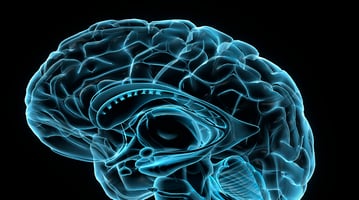People With Restless Leg Syndrome May Be at Increased Risk of Psychiatric Comorbidities
 |
“Psychiatric comorbidities in RLS present two challenging issues in clinical practice: first, a psychiatric comorbidity may complicate the diagnosis of RLS, which is based on subjective reports and requires careful recognition of the so-called ‘RLS mimics’ conditions; and secondly, most antidepressant and neuroleptic drugs worsen RLS symptoms, which may pose a challenge for treatment,” wrote the team of neurologists and psychiatrists from Bern University Hospital and the University of Zurich.
To determine the type and frequency of psychiatric comorbidities in patients with RLS and characterize patients with RLS with and without psychiatric disorders, the researchers performed neurological exams and psychiatric assessments (based on based on the Composite International Interview for DSM-IV) of 49 drug-naïve patients aged 18 to 65 who were diagnosed with RLS. The participants were also asked questions about the severity of RLS, quality of life, and daytime sleepiness, and data on periodic limb movements (PLMs) was collected over the course of several nights. (PLMs during wakefulness or sleep occur in more than 80% of patients with RLS.)
A psychiatric diagnosis was identified in 39% of study participants, with such comorbidities being associated with higher symptom severity for RLS. Among those patients who met criteria for a psychiatric condition, 18.3% had a somatoform disorder, 16.3% had a depressive disorder, and 12.2% had an anxiety disorder. The researchers found that RLS preceded depressive symptoms in 75% of patients with the mood disorder, whereas anxiety and/or panic disturbances were observed prior to RLS symptoms in 83% of patients. Patients with a psychiatric comorbidity also had significantly fewer PLMs than those without a psychiatric comorbidity—a factor the authors suggested may be due to differences in the sleep patterns of patients with psychiatric comorbidity.
“A detailed psychiatric examination and identification of psychiatric comorbidity is essentially needed to better differentiate and treat patients with RLS. The PLM index seems to be useful to differentiate RLS from RLS with psychiatric comorbidity,” the authors concluded.
For more information, see the Psychiatric News article “New DSM Guide Describes Changes to Eating, Elimination, Sleep Disorders Criteria.”
(iStock/andresr)





